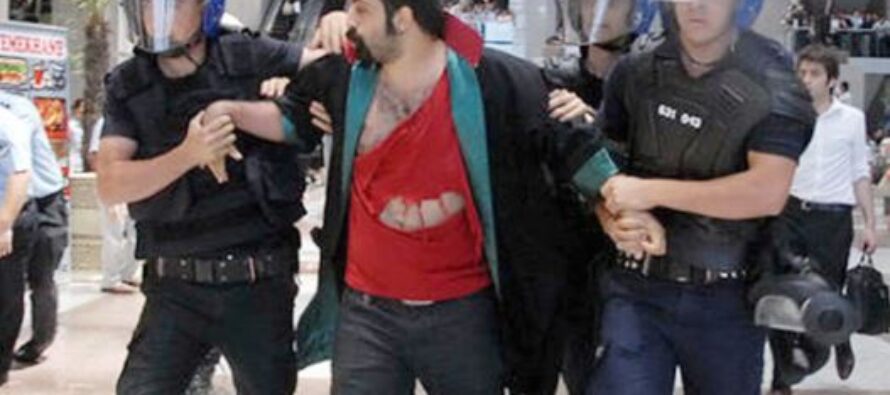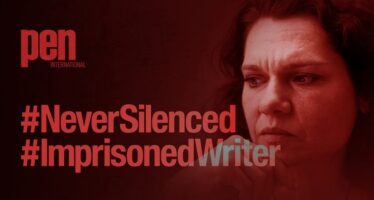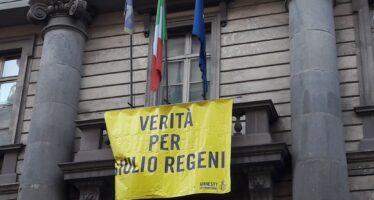“NOW LAWLESS” – TURKEY INDICTED AGAIN

![]()
Despite an obvious disregard of external criticism of its ongoing assault on human rights both in the Kurdish region and against its own perceived internal enemies, President Erdoğan’s Turkey has once again been indicted by an international report.
The Stockholm based – Stockholm Center for Freedom (SCF) – group’s report “Turkey’s descent into arbitrariness: The end of rule of law”, released on 14 April last, slammed the Turkish state for its abuse of human rights, its own citizens and in particular, its assault on an independent judiciary, vital for a country to maintain the rule of law with any notion of justice – instead arbitrariness in the application of the law in Turkey has now become the norm, SCF says.
“Turkey is no longer a country that is ruled by the law in the sense of a true democracy, but rather governed by the whims and emotions of one man and his thugs,” Abdullah Bozkurt, director of the organisation said bluntly, adding:
“Erdoğan weaponized the blatant abuse of the criminal justice system to persecute his critics and opponents, staffed all key positions with partisans.”
The Stockholm Center for Freedom (SCF) is a newly launched advocacy organization that promotes the rule of law, democracy and fundamental rights and freedoms “with a special focus on Turkey, a nation of 80 million that is facing significant backsliding in its parliamentary democracy under its autocratic leaders.”
The non-profit organisation was set up by a group of journalists in exile who have been forced to live in Sweden as a result of the massive crackdown on press freedom in Turkey.
Its stated goal is to provide “a broader picture of rights violations in Turkey, monitoring daily developments…and documenting individual cases of the infringement of fundamental rights.” Its first report: ‘Freedom of Press in Turkey: Far Worse Than You Think’ was produced at the end of January 2017 and this recent study is its fourth in as many months.
And it makes for disturbing reading.
“Over 200 journalists have been jailed in Turkey, most in pre-trial detention, on trumped-up charges of terror, coup plotting or espionage, while some 50,000 people including judges, prosecutors, teachers, doctors and union workers have been arrested in the last eight months alone. The government has purged approximately 140,000 public employees [7,317 were academics and 4,317 were judges and prosecutors] without any effective administrative investigation or judicial probe…”
“…In addition to jailing thousands of judges and prosecutors, Turkey has also imprisoned hundreds of human rights defenders and lawyers, making it extremely difficult for detainees to access a lawyer in violation of a due process and fair trial protections under the Turkish Code on Criminal Procedures.”
The 44-page Report provides an enormous amount of detail outlining the organised collapse of a system where Turkish citizens would be guaranteed a fair hearing through all the stages of the justice process and places it at the feet of:
“President Recep Tayyip Erdoğan, who does not hesitate to abuse the criminal justice system to persecute his critics and opponents.”
At the heart of the Report are “the three crucial components of what constitutes a fair trial, namely the defense, the prosecution and the courts…” These have all been undermined to the point of collapse in Turkey in recent years, “turning the judicial system into merely an extension of the political authority that thwarts an effective defense and employs partisan and loyalist prosecutors and judges. The indictments that were filed against critics and opponents read more like a political manifesto and parrot the government line without offering any evidence to back up absurd claims. As a result, the criminal justice system leads to a severe violation of human rights and is abused by the political authorities to punish dissidents.”
The details outlining the collapse of due process also serve as an indictment in a modern parliamentary democracy with respect for its citizens and the gains made over the course of a century’s struggle for civil and political rights.
1: As regards the Defence: “Over 1000 lawyers have been detained and 411 have been arrested during the last eight months. The accusations raised against these lawyers range from membership in certain social groups and associations to alleged complicity in the crimes with which their clients are charged. In some cases, they are even being questioned why they vigorously defended their clients in the courtrooms.”
2: In relation to Recep Tayyip Erdoğan’s politicisation of due process (what they call “ideological barriers”): “One of the factors undermining the ability of defendants to exercise their right to a defense is that many lawyers and bar associations have a certain ideological bias that can hardly be reconciled with their profession. Most rather want to toe the line of the government as opposed to providing legal counsel to victims who are accused of serious charges by the government. For instance, Mehmet Sari, president of the Jurists Association (Hukukçular Derneği), a pro-government group, publicly said tens of thousands of people who were accused of coup plotting by the government do not have the right to a defense. He said: “Many people are trying to find private lawyers for their relatives who were arrested on coup charges. What we call the right to a defense stems from the fact that people are beings who can think. In the Western literature, this is called human dignity. However, for coup perpetrators to benefit from human dignity, they have to be human beings. And as we don’t regard them as human beings, we don’t accept the demands and reject them.”
Where have we heard this before?
Likewise not regarding even our enemies as human beings is a disturbing statement that negates the most fundamental of grounds for human rights: our inherent dignity and equality as members of “the human family”: “Whereas recognition of the inherent dignity and of the equal and inalienable rights of all members of the human family is the foundation of freedom, justice and peace in the world... (Preamble to The Universal Declaration of Human Rights)
In this way the relatively brief report layers detail on top of detail in relation to the multitude of ways those perceived as enemies of the ruling Justice and Development Party (AKP – Adalet ve Kalkınma Partisi) are disempowered. The result provides a shocking inventory of abuse in a modern state:
- Lawyers completely powerless to stop torture (often occurring in or near their presence)
- Lawyers who themselves are assaulted…”The cases of lawyers who were physically assaulted by the police is another part of an intimidation campaign conducted by the Turkish government against lawyers and human rights defenders.”
Other Restrictions such as:
- There is no longer privacy during meetings between lawyers and their clients.
- The authorities are allowed to record the meetings and ensure that an official attends them.
- Limitations on meeting times and periods have been introduced.
- The authorities have been permitted to block any exchange of documents and seize them.
- The authorities may prohibit prisoners from meeting with the lawyers they choose. Lawyers who are being investigated or prosecuted may be banned from defending their clients.
- When arrested, a person can be prohibited from seeing his/her lawyer for six months. He or she can also be banned from hiring their lawyer of choice by the authorities.
- The requirement for the reading of indictments in court has been abolished. “Thus, defendants have been deprived of their right to learn about the charges leveled against them even in court.”
And, as if that was not enough:
Judges and prosecutors are themselves under pressure: “The practice of widespread dismissals and the arrest of judges and prosecutors as well as the ensuing atmosphere of pressure is another important development that has undermined the right to a fair trial in Turkey. This has thwarted the resolution of complaints under domestic remedies as well. Over 4,300 judges and prosecutors were dismissed from office permanently, and two-thirds of them were disbarred on July 16, 2016, the day after the attempted coup d’état. Their salaries and bank accounts were confiscated.”
A telling comment from President Erdoğan in this regard, returning from a visit to Ukraine on March 20, 2015: “We are closely monitoring the judges who make decisions in [criminal] cases against the parallel structure [a derogatory term he uses to describe the Gülen movement].”
The Report also points out that if you want to complain against all this you need to contact the new Ombudsman (an institution introduced in Turkey in 2010 “as a mechanism that was supposed to safeguard individuals against state bodies…assigned to receive complaints about injustices in the way public services are delivered, to conduct research on these matters and to solve these problems”), however: “The new chief ombudsman is Şeref Malkoç, who has been a close colleague of Erdoğan for 30 years and is a leading Islamist politician. Before he was elected as ombudsman, he was working as the chief adviser to President Erdoğan.”
What is to be done becomes of utmost importance in this disturbing scenario where alongside reports of “massive rights violations including torture, rape and violation of the right to life being committed against persons in custody and in prisons…” and where “There have been 58 suspicious deaths and suicides under the watch of the government in the last eight months alone….” you are left with “a judicial system where perpetrators of torture cannot be punished and where judges and prosecutors are threatened with losing their jobs and being jailed if they fail to do what they are told cannot produce justice.”
The SCF thus argue that as the rule of law is longer applicable in Turkey, the requirement of international bodies for Turkish complainants to exhaust domestic remedies before filing a case with them (in particular the European Court of Human Rights (ECtHR) in Strasbourg, France) has become an additional burden on victims…
“…The European Court of Human Rights (ECtHR), whose judgments are binding on Turkey, a contracting state to the European Convention on Human Rights (ECHR), has so far rejected several complaints from Turkish applicants, citing non-exhaustion of domestic remedies. It is understandable that the court abides by the principle of subsidiarity, which means that the primary responsibility for protecting human rights lies with member states and that an applicant can seek justice at the Strasbourg court only after exhausting domestic remedies. The case law of the ECtHR shows that the court can make an exception when it determines that domestic remedies are ineffective or if it would be too dangerous or not feasible for other reasons for victims to first apply to domestic courts.”
As there is strong evidence now that the judicial system has been politicised and used as a tool in the Ruling Party’s (AKP) attacks on its critics, the opposition (including the Kurdish population in its widespread demands for recognition) and on dissenters:
“All courts and tribunals which may fall into the category of domestic remedies in Turkey have lost their competence to make independent and fair decisions. Can we expect a judicial system to do so if thousands of its members have been arrested and the remaining members have no guarantee of not being arrested at any time? If enjoyment of the right to a defense is not allowed, and defending someone who is critical of the government is treated as a crime in itself and lands lawyers in jail, talking about the existence of the rule of law in Turkey is no longer possible. Even high judges are not immune from this mass persecution campaign targeting anyone who may have a different perspective than the one propagated by Erdoğan and his associates in the government. As a result, it is fairly reasonable to conclude that the rule of law no longer exists in Turkey.”
Thus, in conclusion, the SCF calls on the European Court of Human Rights and other international monitoring bodies, “where a majority of the appeals have been directed…to not delay or deny applications from Turkey’s purge victims and others based on the unrealistic premise that domestic legal processes must first be exhausted.”
It would appear imperative now that the European Court of Human Rights and other relevant Bodies, in the light of the extraordinary circumstances confronting victims of gross human rights abuses in Turkey, begin now to actively address the situation and respond accordingly.
In the meantime, while we wait, those in desperate need of justice, or even an impartial application of the rule of law, will continue to suffer.
Postscript, April 16:
Within a day of the internet-release of the report “Turkey’s descent into arbitrariness: The end of rule of law”, Turkey Purge (www.turkeypurge.com “is a website that was established with the aim of tracking the extensive witch-hunt in Turkey”) reported that the website of the Stockholm Center for Freedom has been blocked in Turkey following a ruling from a court in Ankara: “The protection measure has been taken for this website (stockholmcf.org) according to decision Nr. 2017/2333 dated 07/04/17 of [the Ankara 6th Penal Court of Peace] … implemented by Information and Communication Technologies Authority.”
…leaving us with a question now we would want to ask President Recep Tayyip Erdoğan and other members of the Adalet ve Kalkınma Partisi: Bishop Berkeley, the Irish idealist philosopher (12 March 1685 – 14 January 1753) once reflected: “If a tree falls in a forest and no one is around to hear it, does it make a sound?” Now: if no one in Turkey can hear the whole world calling out its demands that human rights be respected, and that democracy and the rule of law be supported not undermined there, does it mean that what is happening in Turkey is not really happening, your Excellency?
séamas carraher
Sources & References (thanks to)
Image:
Sources & Other Commentary:
Read the Report:
References:
http://www.rcmediafreedom.eu/Tools/Stakeholders/Stockholm-Center-for-Freedom-SCF
http://www.un.org/en/universal-declaration-human-rights/index.html
Video:
September 2016 – Number of Arrested Media Workers / Journalists Rises to 116 in Turkey
‘Turkey is the biggest jail for journalists in the world’ – 11 minute Interview with Can Dündar [Published on Feb 21, 2017 – FRANCE 24 English ]
“Can Dündar is the former editor in chief of Turkey’s Cumhuriyet newspaper. After being charged with espionage and surviving an assassination attempt in May 2016, he fled his country and now lives in exile in Germany.
“I’ve been a journalist for 37 years now, and this is the worst period of time in my life and in Turkey’s history,” Dündar told FRANCE 24’s Marc Perelman. “We’ve never seen such a crackdown before, even during military rule in the 1980s. Turkey is the biggest jail for journalists in the world.”
Dündar also expressed regret that European leaders are not more strongly denouncing the media crackdown, and said this is likely because the EU needs Turkish help with the refugee crisis. “I am totally and deeply disappointed by the attitude of Europe because of the refugee deal. The deal was that Turkey promised to keep the refugees on Turkish soil and not send them to Europe, and in return I’m afraid Turkey bought [Europe’s] silence.”
Dündar also said he was already worried ahead of a “crucial” April 16 referendum on granting greater powers to President Erdogan. That is when “Turkey will decide between democracy and dictatorship“, he said.”
Related Articles
Turkish Court Curtails Writer’s Travel
![]()
n the same month that a Turkish Court sentenced Zehra Doğan, artist and journalist, to almost 3 years in prison for a painting, an Istanbul court has reaffirmed the travel ban on writer Asli Erdoğan in the ongoing war against Freedom of Expression the Turkish State is currently engaged in
UN: Strengthen Civilian Protection in Darfur
![]()
A displaced Sudanese woman is seen at the Abu Shouk camp for internally displaced persons in Al Fasher, northern Darfur.
Egypt. No More Impunity, Truth and Justice for All
![]()
When they ask for truth and justice for their son, Giulio Regeni, his parents always do so by adding at the end of the sentence “for all Giuli and Giulie”, aware that the victims of forced disappearance and torture in Egypt are a multitude lacking all protection




